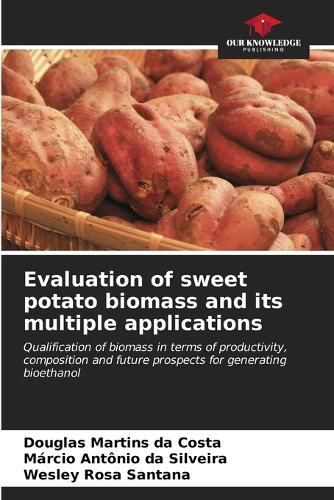Readings Newsletter
Become a Readings Member to make your shopping experience even easier.
Sign in or sign up for free!
You’re not far away from qualifying for FREE standard shipping within Australia
You’ve qualified for FREE standard shipping within Australia
The cart is loading…






The booming industrial development of the 20th century and the accelerated mechanisation of human activities culminated in a scenario of exploitation and use of polluting fuels derived from petroleum, which produces environmental impacts that are far from being quantified, let alone overcome. On the other hand, attempts have been made, albeit at a slow pace, to use renewable and clean energies such as biomass, knowing that harnessing solar energy converted in plants into chemical energy and this into biofuels such as ethanol could be the way out of the environmental crisis in which we live. However, among the various types of biomass, we can highlight the sweet potato, which is little consumed as food in Brazil and has characteristics such as adaptability, rapid cycle, starch concentration and high dry matter content. The use of sweet potatoes could therefore meet the need for this fuel during the sugar cane off-season, since this raw material is available all year round and throughout the country. It is therefore of the utmost importance to optimise the production and sustainability of this biomass for bioethanol production.
$9.00 standard shipping within Australia
FREE standard shipping within Australia for orders over $100.00
Express & International shipping calculated at checkout
The booming industrial development of the 20th century and the accelerated mechanisation of human activities culminated in a scenario of exploitation and use of polluting fuels derived from petroleum, which produces environmental impacts that are far from being quantified, let alone overcome. On the other hand, attempts have been made, albeit at a slow pace, to use renewable and clean energies such as biomass, knowing that harnessing solar energy converted in plants into chemical energy and this into biofuels such as ethanol could be the way out of the environmental crisis in which we live. However, among the various types of biomass, we can highlight the sweet potato, which is little consumed as food in Brazil and has characteristics such as adaptability, rapid cycle, starch concentration and high dry matter content. The use of sweet potatoes could therefore meet the need for this fuel during the sugar cane off-season, since this raw material is available all year round and throughout the country. It is therefore of the utmost importance to optimise the production and sustainability of this biomass for bioethanol production.